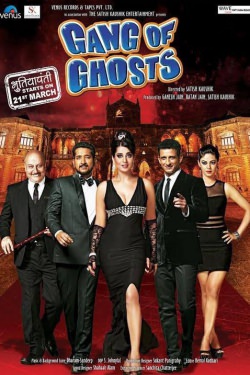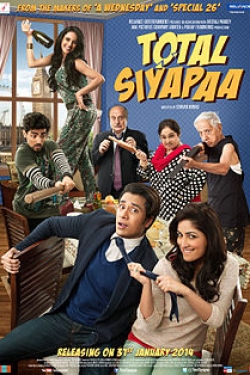Top Rated Films
Suprateek Chatterjee's Film Reviews
-
Predictably, it all ends with an imbecilic climax that, within the Universal Spectrum of Silliness, lies between ‘Scooby Doo’ and ‘Priyadarshan’. But then, it seems that Sajid-Farhad are content to stay in this space: it’s clearly working out for them. Meanwhile, the search for a truly good silly comedy from Bollywood continues.
-
Kirpalani, whose previous credits include Ragini MMS (2011) and Darr @ The Mall (2014), displays impressive control over his craft in many portions of the movie (for once, I have no complaints about the background score, which for me is one of the surest signs of a director firmly in charge)
-
As a viewing experience, Waiting is refreshingly restrained when compared to most other Hindi films. It struck me as a cross between Lost In Translation (2003) and The Descendants (2011).
-
One small mercy is that the film isn’t exactly jingoistic at heart and attempts to further the idea that India and Pakistan are essentially the same country. But the way things are depicted, especially a scene in which Dalbir says of Pakistanis that they are experts at backstabbing (with good reason, at that point), it’s likely that many portions will be interpreted as being anti-Pakistan. This is what happens when a good idea is dumbed down — a tragedy tends to lose its complexity and becomes a convenient tool for propaganda.
-
What a pity, though. Azhar could honestly have been a great biopic, even within its own self-imposed limitations. Instead, like Azharuddin, it chooses to ignore its own potential and thereby shoots itself in the foot.
-
Agnihotri makes it all-too-evident that the film is a treatise on a clash of ideologies in this country, structuring his screenplay in chapters and an attempt to be balanced. However, by the time the film ends, it’s very clear that it is meant to be a vehicle for the liberal variant of right-wing thought.
-
Thithi isn’t issue-based, unlike many Indian films that have traditionally received such acclaim. Despite depicting many aspects of rural Indian life — patriarchy, religious beliefs, and teenage sexuality, for instance — it isn’t ‘important’ or a ‘must-watch’. It has no flag to wave, and no apparent desire to kick-start conversations on hot-button issues.
-
A film like this should have been about the moments and emotions the characters feel during the journey. But the screenplay chooses filmi twists — including one slightly twisted narrative whose resolution is unbelievably tame — over these.
-
Despite all its attempts at sincerity, the film commits the cardinal sin of treating its school-going characters with a touch of condescension — a sin no film like this should commit.
-
At the end of the day, it’s up to King Khan to save the film from itself, and, for the first time in years, the man delivers.

























